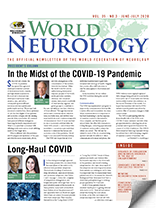Six candidates present their experience and vision for what they would bring to the role of elected WFN trustee. They are listed in alphabetical order.
Candidate Statement for Elected WFN Trustee: Prof. Kailash Bhatia
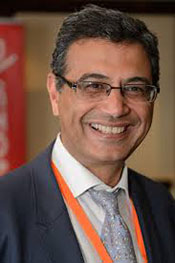
Prof. Kailash Bhatia
I am honored to be nominated for the position of the WFN trustee. The Association of British Neurology (ABN) nominated me as an elected World Federation of Neurology (WFN) trustee, and I am privileged to be considered as one of the candidates for this post. I hope to be able to contribute to the accomplishment of the WFN mission — to foster quality neurology and brain health worldwide — based on the background of my clinical, academic, and administrative expertise and the experience gained while being involved in clinical practice, research, and teaching in movement disorders and general neurology.
The recent COVID-19 pandemic has made us again aware that disease knows no boundaries, and the world is a connected place, and that strategies for health care and education have to be worldwide. Given that my initial training in medicine and neurology was in India, and I subsequently trained further and specialised in my field of movement disorders in the U.K., I thus have the experience on both sides with regard to needs and requirements as well as expertise and assets in different parts of the world in neurology. I also have the desire to foster communications and collaborations for education and make equitable services possible everywhere. Neurology has been a passion all my life, and I had the privilege of having great mentors both in India and in the U.K.. In turn, I have been able to teach and train over 40 fellows from all over the world. They have in turn appraised me of the situation in their respective countries in neurology and will be contacts for development of new initiatives for education and the WFN projects worldwide.
My main area of research has been in movement disorders in a translational way, merging clinical, genetic, and electrophysiology to understand pathophysiology. I have been honored to be the associate editor of Movement Disorders Journal and the current founding editor of Movement Disorders Clinical Practise Journal and have authored more than 600 papers in peer-reviewed international journals and several book chapters and books, including the BMA-award-winning Marsden’s Book of Movement Disorders, a large reference tome. I have led or participated in various international task forces for setting up new diagnostic guidelines for tremor, dystonia, and others.
It’s the endeavor of the WFN to develop cooperative strategies, and I can help promote these through my associations at senior levels with the European Academy of Neurology, ABN, and the International Movement Disorders Society.
I have been involved in spreading neurological education throughout the world, teaching in local symposia not just in Europe but also in India and the rest of Asia and also Africa on several occasions recognizing and tailoring to the available resources, which can vary — and these experiences will help me address specific needs and implement the charter of WFN.
It would be a tremendous privilege to be elected as trustee by the delegates of the WFN to implement the WFN strategy. My goals would be communication, education, and partnership and fostering new developments and collaboration with member societies and neurologists all around the world.
Candidate Statement for Elected WFN Trustee: Prof. Mustapha El Alaoui-Faris
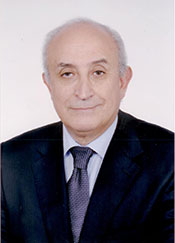
Prof. Mustapha El Alaoui-Faris
I am Mustapha El Alaoui-Faris, professor of neurology at the University of Mohamed-V and director of the Alzheimer’s Centre of Rabat. I graduated with an MD from Mohamed-V University and trained in neurology and psychiatry in Rabat and in neuropsychology in France. I have taught neurology and neuropsychology and taken care of patients since 1981. My main interests in neurology are dementia, neuropsychology, stroke, Parkinson’s disease, multiple sclerosis, and neuro-epidemiology. I pioneered the translation of “Neuropsychological Tests in Arabic” and established the first master’s degree on clinical neuropsychology in Morocco.
In 2008, I developed deep brain stimulation for Parkinson’s disease at Rabat’s University, and in 2009, I led a national study on “Stroke Epidemiology, Risk Factors, and Genetics in Morocco.” I am past president of the Moroccan Society of Neurology and of the Maghreb Federation of Neurology and current president of the Moroccan Foundation Against Neurological Diseases.
I am a founding member of the African Academy of Neurology (AFAN), for which I actively participate in the drafting the bylaws, and I also draft the bylaws of the Pan Arab Union of the Neurological Societies (PAUNS). I was a member of the WHO board for the “Revision of the International Classification of Diseases 10 (ICD 10) of the Nervous System” and the WHO Zika Committee.
My commitment for the World Federation of Neurology (WFN) started with the organization of the 20th World Congress of Neurology (WCN) held in Marrakech in November 2011, of which I was the president. This congress was a great success with more than 3,500 participants worldwide; several African neurologists were able to participate in the congress thanks to the scholarships of the Moroccan Society of Neurology.
Since 2011, I have been the WFN Moroccan delegate, and I was involved in different activities of the WFN. Among others, I was a member of the Educational and Grant Committees. In 2013, I established the first WFN Training Center in Rabat, where several African neurologists have been trained in clinical neurophysiology. In 2014, I initiated the WFN Applied Research Group (ARG) on “Neurology in Migrants,” whose scientific work will be published by Springer this year. In order to perfect the continuing education of Moroccan neurologists, I coordinate, since 2016, three annual sessions to work on the AAN Continuum books.
In the last years, I was actively involved in the organization of the 24th WCN held in October 2019 in Dubai, as a co-chair of the Teaching Course Committee and also by preparing the Tournament of Minds material. I am currently a member of the WFN Finance Committee.
In the Dubai Congress, I was honored to receive the prestigious WFN Medal for Service to International Neurology.
I will be honored, if I am elected as a WFN trustee, to participate in the development of neurology worldwide, particularly in low- and middle-income countries. I will also campaign for the needs in neurological care of migrants and ethnic minorities to be recognized as a priority by international health authorities.
Candidate Statement for Elected WFN Trustee: Prof. Morris Freedman
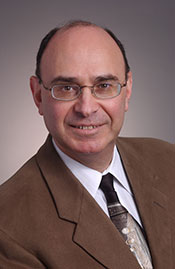
Prof. Morris Freedman
I am honored to have served as WFN chair of the Membership Committee, Canadian delegate, Education Committee member, co-chair of the eLearning Task Force of the Education Committee together with Prof. Riadh Gouider, and trustee. I have also served as president of the Canadian Neurological Society, Canadian Congress of Neurological Sciences, and Federation of National Specialty Societies of Canada. My clinical, research, and education foci are on dementia. During the COVID-19 pandemic, I have been actively involved in providing virtual care to patients in long-term care facilities and acute care hospitals who are suffering from severe agitation and aggression associated with dementia. In many cases, this has prevented transfers to acute care hospitals. Thus, COVID-19 has taught us the power of virtual care for patients in need, including those who cannot attend an in-person visit. As a result, I have become a strong advocate for physician education and training in virtual assessment and management, especially as applied to dementia.
I am pleased that the Canadian Neurological Society has nominated me for election as a WFN trustee. I am proud that Canada developed a WFN Department Visit program for young neurologists from Central and South America through the efforts of Prof. Guy Rouleau, director of the Montreal Neurological Institute and Canadian delegate to the WFN, and that the Canadian Open Neuroscience Platform, which has its base at the Montreal Neurological Institute, is well positioned to serve as an integrator and facilitator of education worldwide.
Achievements
I have taken an active international leadership role in neurological education. I have advanced international e-learning with a focus on dementia through weekly videoconferencing of behavioral neurology rounds that bring together health care professionals from across the globe within a virtual classroom. The goal is to develop greater international communication and knowledge transfer in dementia. I was awarded the prestigious Colin Wolf Award from the Faculty of Medicine, University of Toronto, for this initiative. The international rounds are now recorded and can be accessed through a link on the WFN website. More recently, I have facilitated expansion of international rounds to include general neurology.
An important development modeled on the international behavioral neurology videoconference rounds was the Neurology International Residents Videoconference and Exchange (NIRVE) that promotes international collaboration among neurology trainees.
Goals
My major goal in education through e-learning is directly related to the mission of the WFN to foster quality neurology and brain health worldwide. I will work hard to achieve this goal through innovative virtual programs. This will involve both developing and developed countries with a view to transferring knowledge in both directions with all participants as equal partners.
I have a vision, a clear sense of direction, and the focus to facilitate knowledge transfer for enhancing brain health globally. This will require extensive collaboration involving many people with diverse needs, and across many countries. Those who know me say that I am an excellent team player and organizer, qualities that are essential for success in promoting education in neurology worldwide.
Candidate Statement for Elected WFN Trustee: Prof. Beomseok Jeon
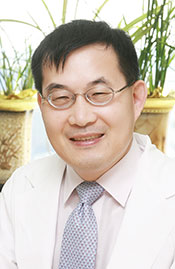
Prof. Beomseok Jeon
It is an honor and privilege to be considered for the position of elected trustee by the World Federation of Neurology (WFN). I am a professor of neurology at Seoul National University Hospital in Korea. My participation in WFN dates back to 2008, when I became the Korean delegate to WFN, and I now serve as the president of the Asian Oceanian Association of Neurology (AOAN).
A WFN trustee bears responsibilities requiring serious time, effort, and thorough understanding of the Federation’s workings. More fundamentally, a trustee must be committed to the WFN mission “to foster quality neurology and brain health worldwide.” Having served WFN in various capacities, I am fully prepared to carry out the duties of the position and overcome challenges in a pragmatic manner based on my experiences in various scientific, financial, organizing, and steering committees. I currently serve as the international executive committee member of the Movement Disorder Society and am an active contributor to other numerous international societies and journals. Moreover, my years with WFN have strengthened my belief in its core values. If elected as the trustee, I would like to help WFN realize its mission by pursuing the following objectives.
First, prioritize the development of educational programs. Through MDS, I have extensive firsthand experience lecturing in underserved regions as well as in establishing educational programs that cater to the specific needs of such regions. I also have years of experience through WFN, having been on the scientific and organizing committees of the World Congress of Neurology. With awareness and appreciation for the scope of WFN’s educational activities, I believe we can further develop training programs to improve the quality of brain health care worldwide.
Second, expand collaborations with compatible academic organizations. We can be even more productive and increase WFN’s impact by taking advantage of the Global Neurology Alliance to identify and partner with other brain-related research institutions around the world.
Last, reinforce our support for under-resourced parts of the world in accordance with WFN’s avowed ideals. This means focusing on training and education so that people in underserved regions can receive better treatment for neurological disorders. I would like to offer my experiences with medical infrastructures in such regions to act as a bridge between WFN and regions in need.
What unites my experience as a neurological researcher, educator, editor, and administrative executive is my belief in the importance of brain health for all. I have had the pleasure of working with like-minded colleagues from around the world through WFN and hope we can achieve more in the years ahead. I am confident that I can fulfill the responsibilities of trustee and ask for your support.
Candidate Statement for Elected WFN Trustee: Prof. Chandrashekhar Meshram
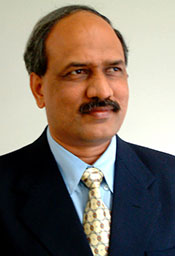
Prof. Chandrashekhar Meshram
I am grateful to the Indian Academy of Neurology and the WFN for considering me worthy for the position of elected trustee.
Services to the WFN
My involvement with the WFN began in 2009 as the national delegate. The WFN balances its thinking and action very well, and I found that I have the experience, enthusiasm, and passion to work in such a milieu. I have served for three terms as a member of the Constitution and Bylaws Committee and for two terms as a member of the Scientific Program Committee. The tropical neurology subsection had been dormant for many years, and I took the challenge to resurrect it by successfully organizing the first International Tropical Neurology Conference in India in 2017. I was then given the responsibility to take it further as president of the Tropical and Geographical Neurology Specialty Group (TGNSG). I was co-chair for INTROPICON II held in Brazil. TGNSG now is one of the most vibrant specialty groups of WFN. I am co-editor for a special issue of JNS on tropical neurology. I am also involved in activities of the Global Neurology Alliance and the Environmental Neurology Specialty Group.
The World Brain Day initiative of WFN is highly praiseworthy. The public education campaign is close to my heart due to its importance in prevention and timely treatment of neurological disorders. I have been actively organizing World Brain Day activities. I have published a book of paintings by children about their perception of the brain. Taking inspiration from WFN, we started National Brain Week for public education in India. I have been the national convener of it for the last five years. In addition, for the last 20 years, I have been organizing public education activities on the occasion of World Parkinson’s, Alzheimer’s, Epilepsy, Rabies, Stroke, Autism, and Environment Days. I have published about 300 articles in various publications. The recent COVID-19 pandemic has emphasized the importance of public awareness in disease control and prevention.
The global burden of neurological diseases is massive, and there is a shortage of neurologists to deal with it. Therefore, for the last 12 years, through WFN Continuum activity and other CMEs, I have been organizing educational programs for neuroscientists and general physicians, so that they become more confident in handling neurological problems.
Goals
The core mission of the WFN, fostering quality neurology and brain health worldwide, fascinates me. There is a glaring inequality in neurology care and education worldwide. The developing and underdeveloped countries lag behind in both these aspects, and WFN is making every attempt to help them catch up. I have experienced this firsthand, and I am committed to addressing it. We need to focus on the management and long-term care of diseases in settings with poor resources where the lack of manpower and funding remain as major obstacles. This has been brought into sharp focus by the COVID-19 pandemic. We need to emphasize to all countries that health, and especially brain health, is a priority and needs higher attention and budgetary allocation. Public participation and health education is important in improving the outcome of patients with neurological diseases and, as mentioned earlier, I have participated in this enthusiastically.
The WFN Executive Committee needs representation from developing countries. This need and a passion to work for the WFN are my reason for standing for the post of an elected trustee. I would be grateful for your support.
Candidate Statement for Elected WFN Trustee: Prof. Mohammad Wasay
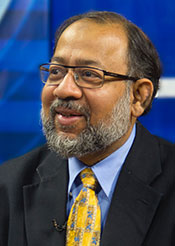
Prof. Mohammad Wasay
I am currently a professor of neurology at Aga Khan University in Karachi, Pakistan; past president of the Pakistan Society of Neurology and Pakistan Stroke Society; president of the Neurology Awareness and Research Foundation; editor of the Pakistan Journal of Neurological Sciences; chief editor of Jahan e Aasab (a neurology public awareness magazine), and a member of the Technical Advisory Committee for Pakistan Health and Research Council (PMRC) and the Prime Minister’s Task Force on Science and Technology. I have also served as director of the World Stroke Organization (WSO) and currently serve as a fellow of the Pakistan Academy of Medical Sciences and the Pakistan Academy of Sciences and secretary of the Environmental Neurology Speciality Group (ENSG) of the WFN.
I have worked with WFN for more than a decade as an active neurology advocate and researcher from South Asia. I was trained at the Palatucci Forum and then received an Advocacy Leader of the Year Award by the American Academy of Neurology for my global advocacy contributions. I served as chair of the World Federation of Neurology Advocacy Committee for four years. This committee was instrumental in starting and organizing World Brain Day activities and promoting brain health across the globe. We organized many advocacy workshops during the Asian Oceanian Association of Neurology conferences, the Asian Pacific Stroke Conference, and the World Congress of Neurology.
I started the Afghan neurology initiative, secured funding from the American Academy of Neurology and the French Medical Institute in Kabul, Afghanistan, and trained three neurologists from Afghanistan at Aga Khan University in Karachi, Pakistan. These trained neurologists have started neurology training programs, education, and research in Afghanistan and established the Afghan Neurology Association (AFNA). We are working at Aga Khan University to establish a network of neurology training and research in Kenya, Tanzania, Afghanistan, and Central Asia. We established an Asian stroke network with more than 20 centers in 10 Asian countries. This network has published many multicenter and multinational studies related to stroke in young and Asian women, stroke in pregnancy, and cerebral venous thrombosis in Asia.
I have trained more than 40 neurologists under my supervision. Some of my trainees are now heads of departments and program directors not only in Pakistan but in the Middle East, United States, Canada, and the U.K.. I have published more than 170 papers in peer-reviewed medical journals with impressive publications metrics (IF: 466; citations=4276, H- index 33 and I10 index 85) for a clinical neurologist in a developing third world country. I have received many awards, including the Teacher Recognition Award by the American Academy of Neurology, a gold medal from the Pakistan Academy of Medical Sciences, a gold medal from the Pakistan Academy of Sciences and Research, and productivity awards by the Pakistan Council of Science and Technology. I have received 27 research and training grants (intramural and extramural) as principal investigator and co-principal investigator. I have been an invited speaker at more than 120 conferences in 70 countries.
The growing burden of neurological diseases in the world has established WFN as an important stakeholder in global health. We plan to establish brain health as a top agenda for WHO and the United Nations. There is an inequity in neurology training and care across the globe. South Asia, Central Asia, and Africa should be a center point for our future interventions. As a trustee, I could play a valuable role in promoting both of these agendas. Our advocacy committee and ENSG could play an important role in establishing WFN as a key player in global health.
